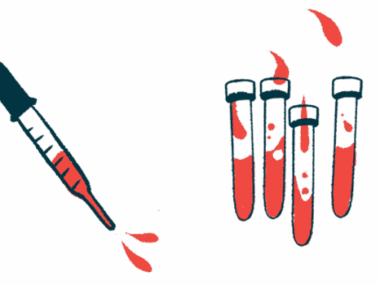Trusting Your Instincts When Things Go Wrong
Written by |

Hey, everyone!
I’ve never been someone who goes to the hospital just because I’m not feeling well, but given the circumstances of my health the past few years, I decided to go last Sunday.
Long story short, last month and last week, I had a very strange thing repeatedly happen to me. I would wake up at 1 or 2 in the morning, unable to fall back asleep. This is strange for me because since having my tumor removed, I’ve tended to sleep throughout the night. Each time I awoke, I started having pains in my stomach around 5:30 a.m. By the time 6:30 rolled around, I was retching. There was nothing in my stomach to throw up, but I gagged anyway.
The first time this happened, I didn’t go to the hospital. I just took some hydrocortisone (even though I’ve been off this medication since March 2017) and Gravol (dimenhydrinate), and went back to sleep. Last Sunday, not only did I throw up but I also dry-heaved insanely, shook, and felt dehydrated. I had been suffering from intense exhaustion all week (mentally and physically), and I was feeling very weak. I decided to go to the ER at this point, because in my Google searches, everything I had was a sign of developing adrenal insufficiency.
I felt so horrible that I didn’t want to get in the car and get a ride to the hospital. But I did anyway, and I’m glad I did. All of my blood work came back “normal” and apparently my electrolytes were “perfect.” The feeling of dehydration was confusing, but to ensure my body felt better, doctors gave me two bags of IV to further hydrate my body. I opted out of IV hydrocortisone because I felt at ease due to my blood work being fine. I took how I felt into account because one thing I learned from the endocrinologist in the hospital when I had my surgery was that it’s important to aid according to how the patient feels instead of relying only on lab results.
I’ve since contacted my general practitioner (GP) and endocrinologist and will be meeting with them to see what they want to do with me regarding testing for anything hidden that could be happening. This process is what I’m comfortable with and trust in.
Cushing’s is scary, and the aftermath is incredibly terrifying as well. It’s not easy to know if you should just let strange bodily things happen, rush to the ER, or warn your doctor about it. It’s easy to feel incredibly anxious all the time about strange symptoms because you’re supposed to feel better as time goes on after your surgery. But when you do feel better, you think it may be a sign that the Cushing’s is coming back, because feeling good means that your cortisol levels are going up.
The lesson I’ve learned throughout this all, being 16 months post-operation, is that it’s better to be safe than sorry. Don’t feel good about how you feel? Don’t fear going to the ER. Take your surgery notes with you as well. It really helps the nurses and doctors to better understand what you’re going through since they don’t get many Cushing’s patients going through their ward very often. If you feel you can wait to see your GP or endocrinologist, do that. Just do whatever your gut instinct is telling you to do!
Don’t be afraid to seek out the help you need during a given situation. Cushing’s pre- or post-surgery is nothing to take lightly, and it takes a while to adjust to life afterward. It’s definitely a very long and exhausting recovery, so try not to be too hard on yourself!
See you all next week!
XOXO, Catarina
***
Note: Cushing’s Disease News is strictly a news and information website about the disease. It does not provide medical advice, diagnosis, or treatment. This content is not intended to be a substitute for professional medical advice, diagnosis, or treatment. Always seek the advice of your physician or other qualified health provider with any questions you may have regarding a medical condition. Never disregard professional medical advice or delay in seeking it because of something you have read on this website. The opinions expressed in this column are not those of Cushing’s Disease News or its parent company, Bionews Services, and are intended to spark discussion about issues pertaining to Cushing’s disease.






Leave a comment
Fill in the required fields to post. Your email address will not be published.